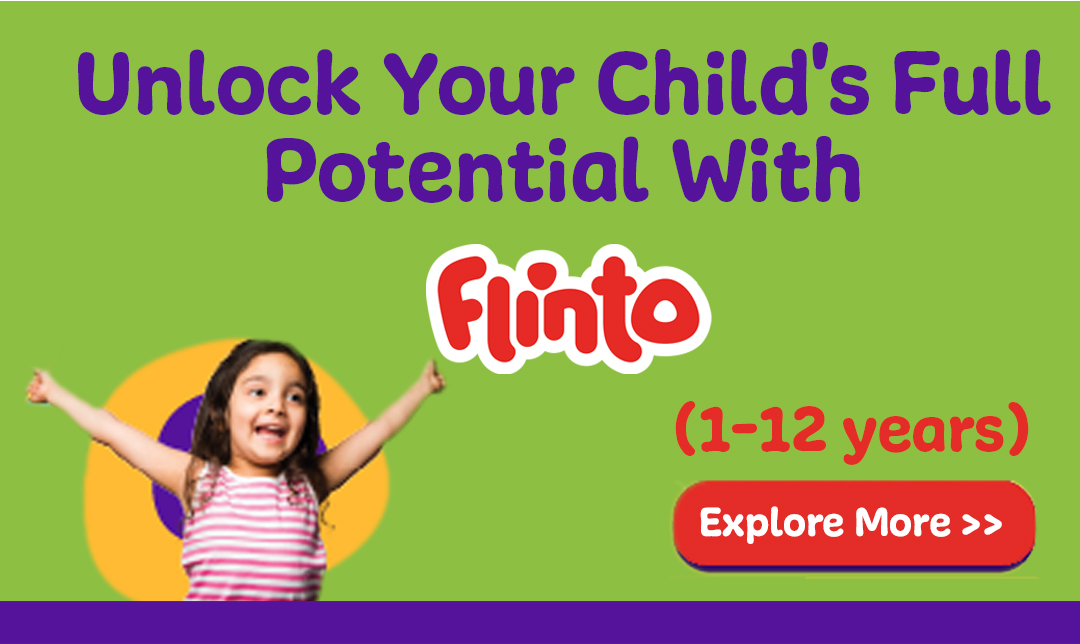
Storybooks are an essential part of growing up, aren’t they?
The benefits of reading and storybook time are plentiful!
In fact, learning to read is an important milestone in your child’s development.
While there is no set time or age when your child will read an entire book on their own, it becomes our responsibility to help create positive experiences which will enable them to reach the milestone as smoothly as possible.
Moreover, to raise a lifelong reader, their early reading experience matter!
6 reasons why you must foster reading in your child
a) Brain development
Reading is a complex process and involves different regions in the brain.
Emergent reading skill improves brain’s plasticity and helps in academic success later.
There is enough scientific evidence today that suggests early readers exhibit greater thinking ability.
b) Language skills
Reading or being read to not only help children develop their language and enunciation but also helps them express or communicate better.
Early readers establish the phoneme-grapheme links easily and are phonologically aware, providing them with an edge over others.
Definitely, when you read them from a young age, it helps in the overall speech development.
c) Concentration
Flipping through the pages of a book, listening to you read, or pointing at elements on the pages help your child enhance their concentration.
Also, it nurtures imagination in your lifelong reader!
d) Memory
Reading and re-reading books give your little one the opportunity to remember characters, elements or stories. This helps them exercise their brain and develop memory skills.
 e) Social & emotional
e) Social & emotional
We, as adults, learn and adapt so much from the books we read! It’s no different with your little one.
Storybooks are a great way to help your child stay in tune with their emotions.
f) Entertainment
Storybooks are fun! We do want to develop essential skills, but we also want to have fun!
Storytime can be a great way to bond and spend some quality time with your little one.
7 simple ways to nurture a lifelong reader
1) Create a reading space
Use this ‘special reading space’ whether you’re reading to your little one, or they’re flipping through picture books or reading a book on their own. Make the space comfortable and accessible.
How about making the reading space-themed? You can create a fort, tent, indoor ‘treehouse’, or use any of your little one’s favourite elements. An inviting space can help your little one start their reading journey!
The reading space should be inviting enough for your little one to venture in on their own.
Now that they’re in the reading nook, they might as well pick up a book to flip through!
2) Connect to real life
Books are designed to be relatable! As you read the books, connect them to real-life instances.
Maybe you’re reading a book where the main character visits the park; when was the last time your little one visited a park? Draw parallels to that.
Or, this may even be a good time to go to a park. Say, you pick up a book with a recipe in the story, it may be a fun idea to try out the recipe along with the character in the book.
Connecting books to real life may prove to be an incentive for your little one to pick up a book.
3) Reader’s choice

You may have a childhood favorite book that you absolutely want to pass on to your child.
But, alas! your little one does not even consider the book.
This, although heartbreaking, is completely okay. Let your child pick the book they want to read! This applies even when you have to read the book to them.
It’s okay if they pick a book that’s ‘below their reading level’. They will finish this book, then they will read another book that is on their reading level.
4) Read anywhere and read anything
Although your official reading nook is set up in the house, encourage your little one to read everywhere.
Be it menu cards, shop fronts, road signs, cereal boxes, anywhere and everywhere! As they read in all these odd places, it removes the pressure of ‘reading’ and helps them practice.
Make sure you carry a book wherever you go — in the car, at the restaurant, on the way to a playdate, everywhere.
With the pressure of reading removed, your little one is more likely to pick up a book on their own.
5) Storytime helpers
Bring extra excitement to the story by using props and acting out the story.
You don’t need elaborate props, a simple puppet or plushie could help you here.
Or, you can make a storytime helper with your little one — a simple plushie or an elaborate sock puppet would do the trick.
Make it a habit of pulling out the storytime helper whenever you pick up a book. Soon enough your child could be reading to your ‘storytime helper’.
RELATED: Storytelling: Incredible Ways To Tell Great Stories To Your Child
6) Bring it alive!
Take your storybook characters from letters and illustrations to whimsical voices and personalities.
Use props, modulate your voice — put on a deep voice, a squeaky voice or a slow voice.
Now is the time to try out your acting skills! Bringing your characters alive helps your little one view storybooks as more than just words and letters.
They help bring focus to the actual stories and characters.
The more they watch you add voices and personality to the characters, the more they are likely to do the same when reading on their own.
Whenever possible, take your little one to storytelling sessions in your locality.
7) Know When To Stop
Storybooks are educational, age-appropriate, essential, and they’re also… fun.
Although we want our little ones to read because of the many benefits, we have to keep it in mind to ensure it remains fun.
During your storybook sessions, if your little one has had enough of a book, let’s put it down.
Gently re-direct their attention back to the book, but if you’re greeted with another stern ‘no’, maybe it’s time to find another activity.
Making storytime an enjoyable experience is easy to do! It goes beyond just buying the best books.
We have to create an experience around reading the book which would resonate with your child. The increased pressure on children to read more definitely overshadows the joys of reading.
pressure on children to read more definitely overshadows the joys of reading.
Being able to read confidently is a major factor in making reading enjoyable, but it shouldn’t be the only factor.
Conclusion: Start early to make reading fun!
When you want to inculcate reading as part of your child’s life, start early!
Children often mimic what their parents do. So, pick a book to and settle down with your child.
Do try to narrate stories, tell stories of your own, build stories from their stories, and watch their curiosity bloom!
Let’s go ahead and let the books transport you and your little lifelong reader into other marvellous worlds!
What are your tips to raise a lifelong reader? Do let us know!



 e) Social & emotional
e) Social & emotional


